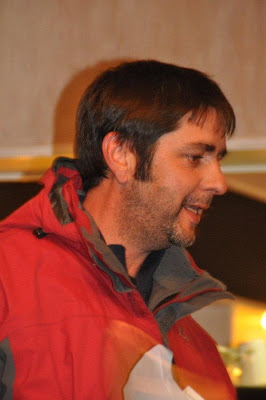Review of 100 Papers, Liesl Jobson, Botsotso Publishing, Out of the Wreckage, Allan Kolski Horwitz, Botsotso Publishing, Botsotso 15: Jozi Spoken Word Special Edition
Flash fiction — essentially a very short story, which can range from about 10 lines to four pages — might be regarded as the ideal kind of genre for our rushed, fast-paced times. But it is as ancient as Aesop, and was practised by writers such as Anton Chekhov and Ernest Hemingway.
South African Liesl Jobson has just published her debut volume,
100 Papers, which consists of 100 prose poems and flash fiction pieces. The opening piece in her collection, Shopping List, sets the tone for many of the other stories with its strong sense of the understated, of what is not being said, of unspoken and unresolved tensions.
It also introduces the theme of relationships, motherhood and loneliness, although some of the stories are fairly lighthearted, such as How the Oreo Stole Christmas and Bridgework.
And, not surprisingly, considering Jobson’s career as a bassoonist, many of them feature orchestral musicians, such as Bassoon Lesson, Perfect Timing, Zebra Breath, and She Cannot Love Her Own Air.
Notable flash fiction pieces in the collection are Litter-Bugs, Spider Salad, Bump, Saviour, Cell, My Mother’s Diary, Vessel and Green Socks, White Lies.
But the strongest items are the prose poems, such as Naysayers, A Hundred Times a Day, In the Biscuits, Sun-Dried Tomatoes, The Corner of My Eye, and Under My SAPS Star, though sometimes the distinction between the very short flash fictions and the prose poems are not so clear, such as with Cell — a mere 17 lines and clearly a narrative — and Vessel, which is one-and-a-half pages but reads like a prose poem.
This is a welcomed debut volume. A slight problem is the fact that the strongest pieces are mainly in the second half.
Botsotso editor Allan Kolski Horwitz’s
Out of the Wreckage is also a collection of very short fiction, predominantly a series of “dream parables” involving a male character named Abel.
They are surreal tales which the blurb says consist of “the dream-like; the waking fantasy; the reverie; the parable that instructs; the story that informs … the dream that saves the dreamer”.
Like Jobson’s volume, most of the pieces are not longer than three to four pages, and one piece, Excursion, is only 19 lines. Some are more conventional short-story narratives, two of which — Blue and Ashford — appeared in a previous Botsotso anthology of short fiction,
Unity in Flight.The collection starts off promisingly with The President, a powerful, all-too-familiar story of a despot determined to hold onto power while his country goes to ruin.
Despite the dream-like atmosphere throughout the volume, the realities of a contemporary violent society are sometimes not too far away — one of the pieces is called War Time.
While some of the other dream parables are strong — such as Discover, The Dog, Accidents, Out of the Wreckage, The Festival and She Was Taken Captive — the most rewarding pieces are the more conventional stories, such as The Tap Plant, A Faraway Shopping Centre, Four Seasons, Gerhard, Blue, Ashford, Mystery in the Cottage and She Whom I Love.
The concept of the dream narrative is fascinating, but the overall feeling with
Out of the Wreckage is that of overkill. If the number of dream parables had been reduced, or if there were more conventional stories to create a balance, the book might have been more effective.
The 15th issue of literary journal
Botsotso is a special edition, with about half of its 200 pages selections of material presented at the first Jozi Spoken Word festival, which took place over four days at Wits University last year.
There is commentary from critics such as Anthea Buys and Darryl Accone and papers on Who Makes or Breaks the Canon? by James Ogude and Rosemary Gray, which were originally part of a panel discussion at the festival.
There are poems by Angifi Dladla, Hugh Lewin, Mak Manaka, Ike Mboneni Muila, Siphiwe ka Ngwenya, Peter Horn, Mphutlane wa Bofelo and Dennis Brutus, as well as short fiction by Achmat Dangor, Horwitz and Jobson.
The second section contains new work ranging from short fiction by Zukiswa Wanner, Jean-Francois Kouadio, Hlengiwe Mnguni and Arja Salafranca, to poetry from Alan Finlay, Brent Meersman, Elizabeth Trew and Dave Stevens.
The volume is illustrated throughout with a powerful graphics series called Xnau by Garth Erasmus, which are the result of flame on paper and show mysterious black and white shapes suggesting figures or skeleton-like bones.
In SA, where literary journals are scarce and constantly struggling for survival, it is encouraging to see Botsotso not only still publishing, but also growing stronger and publishing such rewarding, innovative and imaginative work.
(First published in The Weekender September 20, 2008)








a.jpg)












.jpg)
















